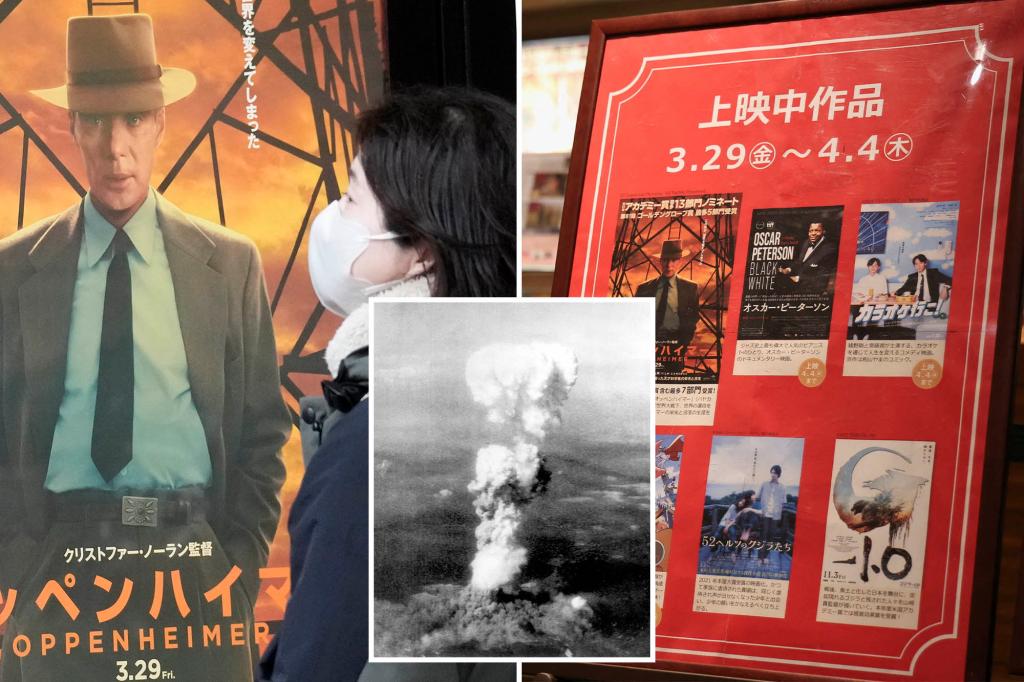The film “Oppenheimer,” which won the Academy Award for Best Picture, premiered in Japan after a controversy lasting eight months over how it would be perceived. Some theaters in Tokyo posted trigger warnings due to the inclusion of images of nuclear tests in the Christopher Nolan-directed film, which tells the story of physicist J. Robert Oppenheimer, the man behind the atomic bombs dropped on Hiroshima and Nagasaki in 1945.
Despite the film’s critical acclaim and Oscar success, some Japanese viewers found it difficult to watch due to its depiction of the atomic bomb. One Hiroshima resident expressed discomfort with the portrayal of the bomb, which killed over 200,000 people and ended World War II. Additionally, some in Japan were offended by the “Barbenheimer” phenomenon, which associated “Oppenheimer” with the comedy “Barbie,” leading to concerns that the serious subject matter was being trivialized.
Initially not included in the global release schedule by Universal Pictures, “Oppenheimer” was later picked up by Japanese independent film distributor Bitters End for a post-Oscars release date. The film’s portrayal of such a sensitive topic brought about mixed reactions in Japan, with some feeling that it was an important story to tell while others struggled with its depiction of the atomic bomb and the pain it caused.
The debate over “Oppenheimer” in Japan highlights the complexity of reckoning with the legacy of the atomic bombings. The film’s portrayal of J. Robert Oppenheimer and his role in the creation of the atomic bomb raises questions about the morality of such actions and the long-lasting impact of nuclear weapons. The trigger warnings at theaters in Tokyo underscore the need to approach this subject with sensitivity and awareness of the painful history associated with it.
Despite its controversial reception in Japan, “Oppenheimer” continues to spark discussions about the events of World War II, the role of scientists in creating weapons of mass destruction, and the moral implications of nuclear warfare. The film’s release in Japan, with the addition of trigger warnings, reflects a recognition of the need to approach topics related to the atomic bombings with care and respect for those who were affected by them. As audiences reflect on the film’s depiction of history, it serves as a reminder of the devastating consequences of war and the importance of learning from past mistakes to prevent such tragedies from happening again.


